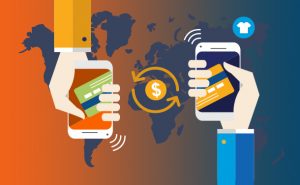As of January 1, 2022, the Internal Revenue Service (IRS) now requires mobile payment apps like Venmo, PayPal, and Cash App to report commercial transactions exceeding $600 annually. The service provider must file a Form 1099-K if a user receives more than this threshold amount in commercial payments in one year.
Previously, the payment apps had to report to the IRS if someone earned more than $20,000 and conducted more than 200 transactions per year. Now, with this change, the limit has been reduced to $600, regardless of the number of transactions.
In doing so, the new rule will ensure that small businesses using P2P apps and receiving payments through such apps are suitably reporting all their revenue and paying what is due in taxes.
In other words, the IRS is not starting to tax transactions between family and friends. The requirement only applies to commercial goods or services transactions. For instance, splitting a dinner bill, paying a roommate for rent, or reimbursing a friend won’t be reportable for tax purposes.
To ease the process, PayPal and Venmo allow users to tag each transaction as either business or personal.






















